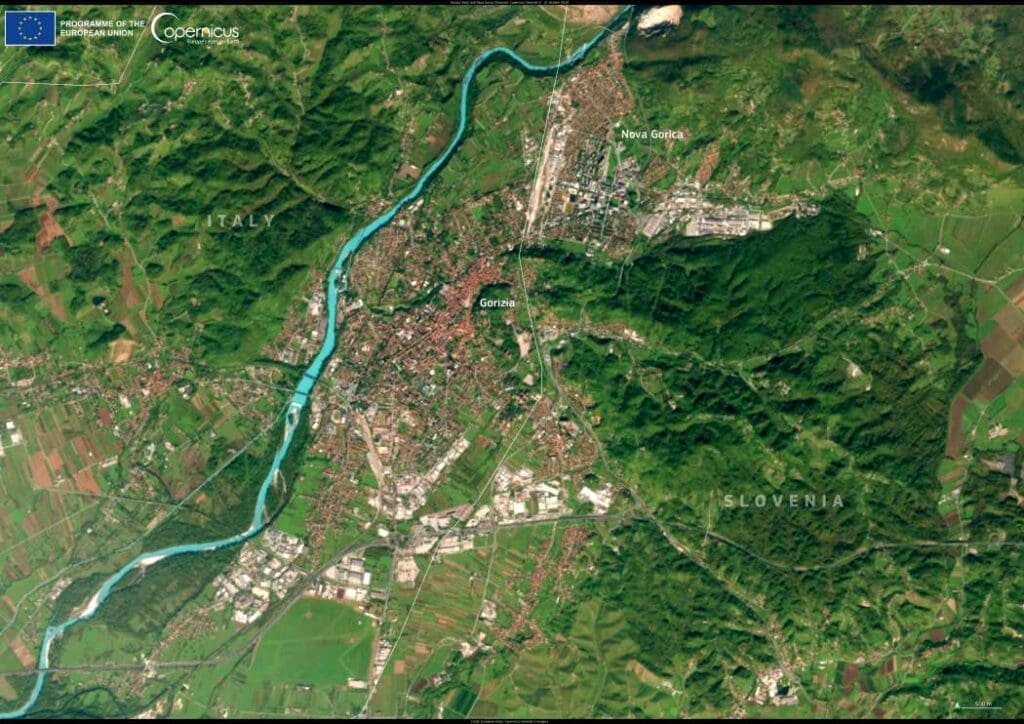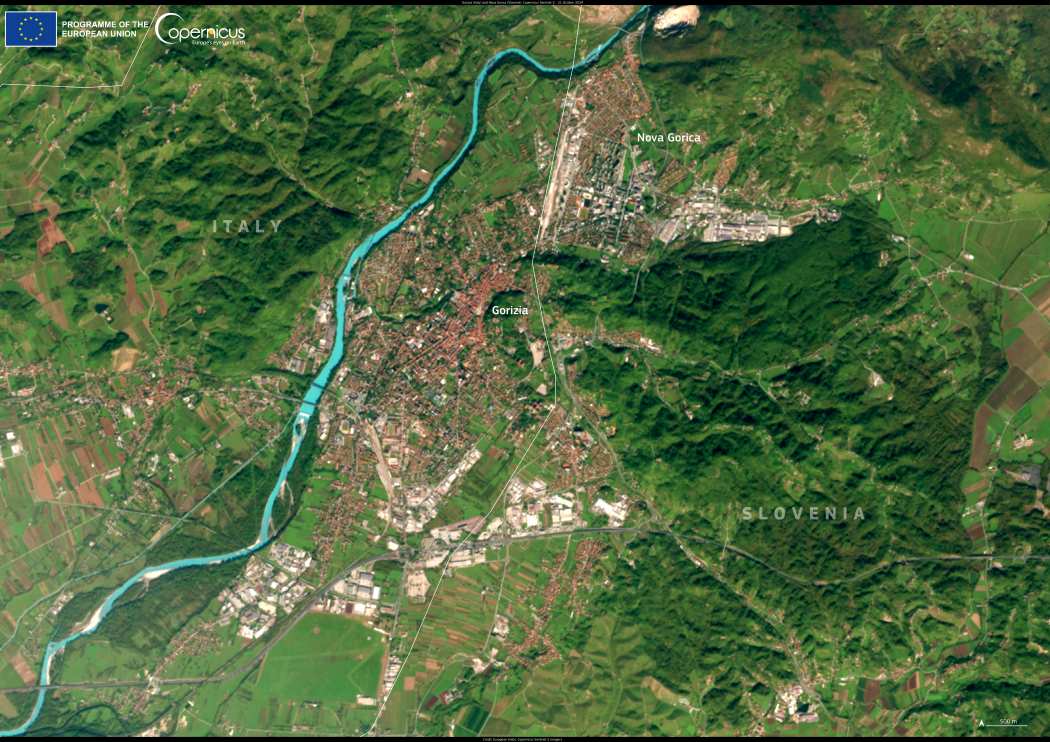For nearly four decades, the European Capitals of Culture program has showcased the richness of European heritage, highlighting cities that use culture to shape their future. In 2025, for the first time in the program’s history, the title was awarded to two cities across a national border: Nova Gorica in Slovenia and Gorizia in Italy.
This unique designation reflects the deep historical and cultural ties between the two cities, which, despite being separated by a border for much of the 20th century, have long shared traditions, people, and a sense of place. After World War II, Gorizia remained in Italy, while Nova Gorica was built from scratch as part of Yugoslavia.
The border, once a symbol of division, has transformed into a bridge between cultures, making this joint recognition a powerful statement of unity in contemporary Europe.

This Copernicus Sentinel-2 image, taken on October 21, 2024, captures the region from above, showing how the two cities are woven together in both geography and history. The European Capital of Culture title is expected to further strengthen their collaboration, fostering artistic projects, urban renewal, and cultural tourism.
Through initiatives like Copernicus, Earth observation data continues to support sustainable urban development, offering insights for smart cities, environmental management, and cultural heritage conservation.
Featured image credit: European Union, Copernicus Sentinel-2 imagery




